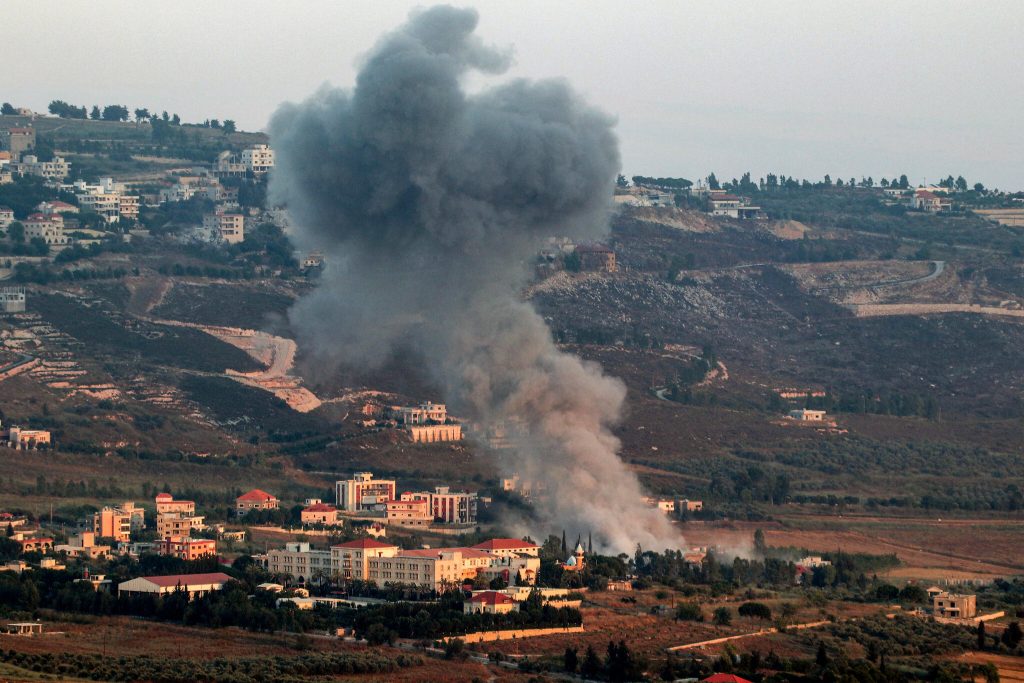The prime minister has called on British nationals in Lebanon to “leave immediately” as the conflict between Israel and Hezbollah, the Iran-backed militant group dominating the region, intensifies.
Sir Keir Starmer emphasised, “We are stepping up contingency plans, which is to be expected given the escalation,” warning that “we are potentially on the verge” of a full-scale war.
The Ministry of Defence (MoD) is sending 700 troops to Cyprus to prepare for a possible evacuation of British citizens from Lebanon. The government continues to advise against any travel to the country.
The situation in Lebanon, where Israeli strikes have reportedly killed over 560 people this week, is described as “rapidly deteriorating, with devastating consequences.”
Lebanon’s health minister told the BBC the country is facing “carnage,” with hospitals overwhelmed by casualties from two days of heavy Israeli airstrikes aimed at Hezbollah.
When asked how the prime minister would avoid a repeat of the chaotic evacuation seen in Kabul during the Taliban’s takeover in 2021, Sir Keir stressed, “The most critical message for British nationals in Lebanon is to leave immediately.”
“We have been very clear: now is the time to leave.”
The Afghan evacuation, in which 15,000 people were airlifted, faced heavy criticism for its disorderly handling.
Currently, an estimated 10,000 UK citizens are in Lebanon. A senior government official noted that, unlike Afghanistan, commercial flights are still available from Lebanon, and British nationals are encouraged to book seats on these flights.
The US has issued similar advice, with its embassy in Lebanon warning that many airlines have suspended or canceled flights, leading to fully booked departures. Americans are urged to secure any available ticket.
The 700 British troops headed to Cyprus will join 500 military personnel already stationed there as part of the MoD’s contingency plans for evacuation.
Two British warships are currently in the region, with Royal Air Force planes and helicopters on standby.
Speaking on BBC Radio 4’s Today program, Sir Keir expressed concern about the possibility of a wider war in the Middle East, saying, “We are potentially at a tipping point and must pull back from the brink.”
He repeated calls for an immediate ceasefire and de-escalation, echoing other ministers.
Defence Secretary John Healey added, “We continue to urge all sides to step back from conflict to avoid more tragic loss of life. The government is making sure all preparations are in place to support British nationals if the situation worsens. I want to thank the British personnel deploying to the region for their dedication and professionalism.”
Healey chaired a meeting with ministers, intelligence chiefs, and diplomats on Tuesday to assess the government’s plans.
Officials have indicated that the UK has a strong diplomatic and military presence in the area, including RAF Akrotiri in Cyprus and two Royal Navy vessels, RFA Mounts Bay and HMS Duncan, stationed in the eastern Mediterranean throughout the summer.
The Royal Air Force also has aircraft and helicopters on alert.
The escalating conflict in the Middle East will be a major issue for the prime minister and other world leaders during the UN General Assembly in New York.
Sir Keir arrived in the city on Tuesday evening.
Tensions in the region have been rising since Hamas militants attacked Israel on October 7 last year, resulting in 1,200 deaths and the capture of 251 hostages.
In response to the Hamas attack, Israel’s military campaign in Gaza has claimed over 41,000 lives, according to the Hamas-run health ministry.
What began as sporadic clashes between Israel and Hezbollah escalated on October 8, the day after the Hamas attack. Hezbollah, in solidarity with Hamas, launched strikes on Israeli positions.
Since then, Hezbollah has fired over 8,000 rockets into northern Israel and the Israeli-occupied Golan Heights. It has also targeted military vehicles with anti-tank missiles and deployed explosive drones against military targets.
Last week, explosions destroyed Hezbollah’s communication devices across Lebanon.
In retaliation, Israel launched a significant wave of airstrikes on Monday, reportedly killing 560 people, according to the Lebanese government.
Last year, the British government helped coordinate the evacuation of British citizens from Gaza, where around 200 UK nationals were thought to be living before the conflict erupted.

